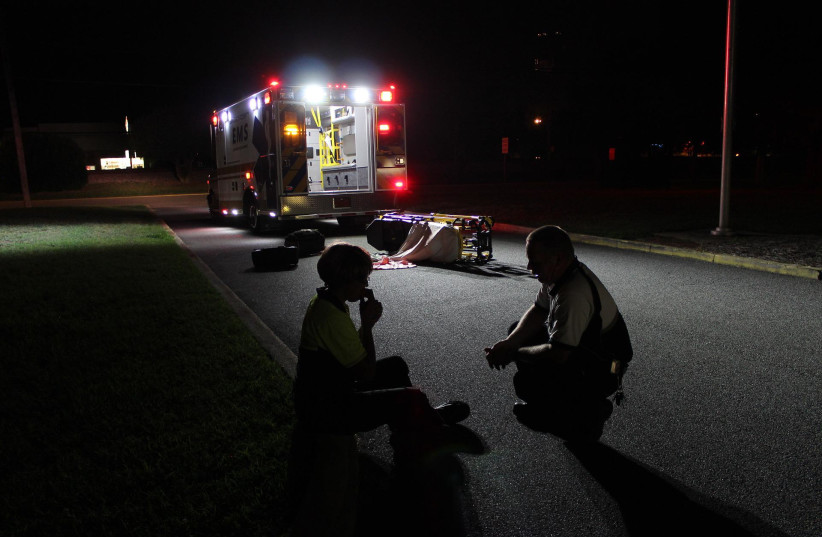The Health Ministry will open two new acute centers in Tel Aviv and Rehovot on Sunday to examine, treat and collect forensic data for police action in suspected rape cases. This will bring the total number of such centers in Israel to 10.
The new centers, at Tel Aviv Sourasky Medical Center and Kaplan Medical Center in Rehovot, join similar facilities at Hadassah-University Medical Center in Jerusalem’s Ein Kerem, Soroka in Beersheba, Wolfson in Holon, Josephthal Hospital in Eilat, Hillel Yaffe in Hadera, Bnai Zion in Haifa, Baruch Padeh Medical Center, Poriya, near Tiberias and the English Hospital in Nazareth.
“Victims of rape and victims of sexual assault encounter the health system in a vulnerable and fragile state, and it is our duty to provide them with respectful, safe, adequate and fast care,” Health Minister Nitzan Horowitz said on Thursday. “As minister, I doubled the budget for this purpose, and we upgraded the responses for helping victims [both female and male, adults and children] in hospitalization, rehabilitation, intensive care and accessibility to psychotherapeutic treatment in the community.
“The two new acute rooms that we are opening now, out of a total of four new rooms in the whole country that we opened since taking office, will provide primary medical, psychological and legal treatment to victims of sexual assault at a high level,” he said. “Only by strengthening the public system will we ensure access to appropriate and dedicated treatment for each and every patient throughout the country.”
Ministry Director-General Prof. Nachman Ash added, “Victims of sexual violence go through a terrible ordeal, placing them in the most vulnerable situation one can imagine. The opening of the new acute centers will expand the response available to them and the ability of the teams to treat victims quickly, gently and professionally. This will help to reduce as much as possible the trauma accompanying the incident and allow those who wish to do so to obtain evidence for the legal process and to act against the sexual abuser. The Ministry of Health will continue to take action against the abuser.”

The ministry recommends that victims contact an acute center as soon as possible after an assault – ideally within seven days – so an immediate response can be provided that includes medical and psychological treatment and a forensic medical examination. Acute centers can be contacted at any time of the day, 365 days a year.
Up to a week after the sexual assault, victims are entitled to receive treatment at the centers – also known as Room 4, Bat-Ami, Room 10, Tene or by other names in the general hospitals. The centers are staffed by dedicated teams that have been trained in the field of sexual trauma who provide sensitive care for all who seek it.
72 hours after the incident
The effectiveness of the preventive medical treatment and the collection of legal evidence are more effective when they are performed within 72 hours from the time of the attack. It is recommended not to shower before arriving at the acute centers and to bring the clothes (in a bag) worn at the time of incident. One must call to coordinate the arrival so the hospital will be prepared to provide an optimal response.
If the sexual assault occurred more than 72 hours before arrival, call the nearest center so the professional staff will guide you as to when to arrive.
If the victim went to a hospital where there is no acute center, they are entitled to be taken immediately by a hospital staffer to the nearest one.
Signs that may indicate the use of a rape drug or obfuscating substance for sexual injury include a feeling of memory loss of several hours. In the case of drinking alcohol, the effect is not typical of that experienced following drinking unadulterated alcoholic beverages. When the drug wears off, victims usually wake up to a situation without knowing or remembering how they got there. In such cases, it is important to ask immediately upon arrival at the emergency room or acute center that they take blood and urine samples to test for rape drugs.
Contact with the centers can be made at the numbers below:
Kaplan Medical Center, Lotus Room, Rehovot – phone (08)-944-1531 between 08:00 a.m.-3:00 p.m. and (08)-944-1580 after that.
Tel Aviv Sourasky, Neta Room – phone (03)-642-3906 or *2329.
Wolfson, Room 4 – emergency number: (03)-502-8313; social service: (03)-502-84545.
Hillel Yaffe, Helena Center – (04)-774-8206, social service: (04)-774-4268.
Bnai Zion, Room 10 – emergency number: (04)-835-9210; social service: (04)-835-9300.
Hadassah Ein Kerem, Bat Ami Room – emergency number: (02)-677-7222; social service: (02)-677-8082.
Soroka, (08)-640-0462 – social service number: (08)-640-0327.
Poryia, Tene Center – (04)-665-2481.
Josephthal – reception: (08)-635-8011.
English Hospital – (074)-755-9049.
